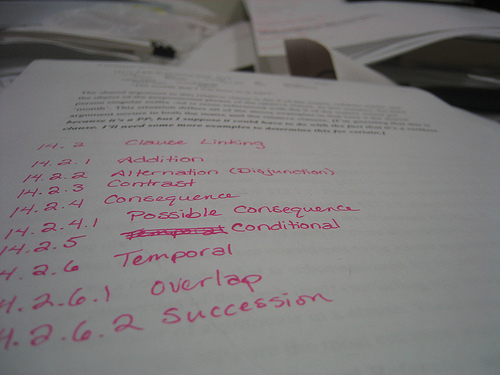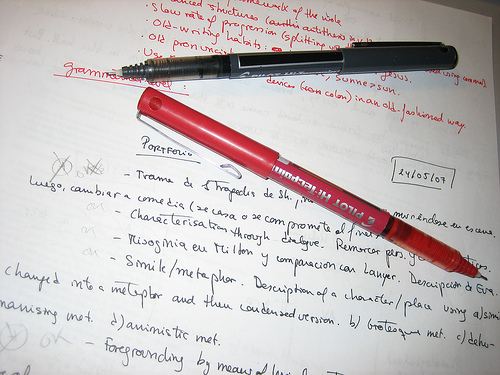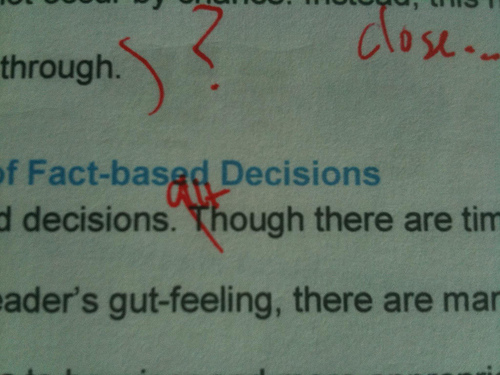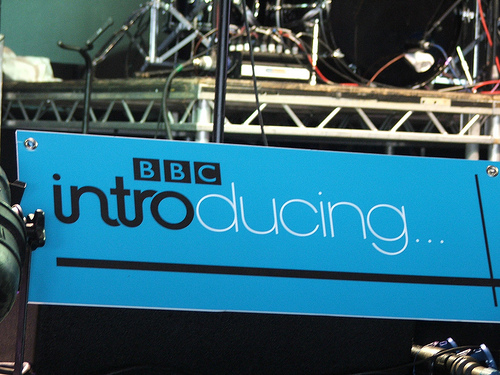
Does just thinking about it make you want to pull your teeth out?
Sometimes just sitting down at your desk to churn out words – not just any words, but good stuff people will want to read and share – is all it takes to bring on nightmare flashbacks to bad teachers and late-night essay cramming.
But, much like the killer in every slasher movie ever made, writing is the beast that just refuses to die.
You could outsource some of it if you have the budget and inclination… but there’s always some writing you have to do yourself. Plus, writing in your authentic voice is a great way to resonate with prospects and clients.
Does writing have to be such a pain in the butt?
Not anymore. Keep reading to find out practical ways to write faster and keep your sanity intact.
Writing Is More Important Now Than Ever Before
Writing can be extremely tough for freelancers and agencies with limited resources – especially if they don’t consider it one of their strong suits.
It’s a lot like submitting client proposals. Writing might not be the most exciting thing in the world for you, but it’s just part of doing business.
That’s especially true today, when modern technology makes you just as likely to connect with people through blog posts and emails instead of over the phone or in person.
You’re expected to make deals, nurture relationships, and grab and keep people’s attention… all through the written word. This goes for social media, your blog, a book, presentations for clients, and everything else.
Wait a second.
What if avoiding this writing stuff was one reason why you decided to become a designer, developer, or something else? Even if you enjoy writing, it can be a huge time sink if you spend hours creating boring, ineffective content.
Practical Tips to Write Faster and Better
What if I told you that you could write much faster than you do now while maintaining, or even improving, the quality of your content?
It probably sounds too good to be true…
But a lot of the skepticism comes from having the wrong impression about writing itself. We’re taught from early on to take our time writing: fast writing equals bad writing.
This just isn’t true. Some people might assume fast writers are lazier than slower folks who agonize over every word. But fast writing is actually more mentally demanding because it requires complete focus. You can’t stop to respond to that text or check social media when you’re racing against the clock.
Writing faster can also improve your quality. It sounds counter-intuitive, but the faster you write, the better you’ll overcome the roadblocks you internal editor throws in front of you.
Ready to see how?
Check out these seven tips to supercharge your writing speed so you can spend more time doing what’s most important: serving your clients.
1. Check Your Perspective
Photo Credit: orangejack
Facing the blank page is challenging enough. Many of us come into the experience with a lot of dangerous preconceived notions which make writing quickly – and well – that much harder.
Have you ever told yourself “I’m just not creative,” “I’m not a writer,” or “my writing sucks?”
Negative thoughts like those set yourself up to fail before you even start. They can make the experience completely miserable.
Writing is simply the communication of organized thought. All of us communicate and think, so we all have the capacity to write well enough for our audiences.
Your audience is much less interested in the quality of your prose than whether your writing is relevant, engaging, and useful for them. You don’t have to write like Hemingway to attract clients or have an article go viral on social media!
You might have had tons of bad writing experiences in the past, but you can experiment going forward. What if you came into it with a new mindset the next time you sat down at the desk? A mindset of “I’m going to write, and I’m going to write fast.”
Be willing to let yourself go and see what happens. You might just shock yourself.
No one gets it perfect on the first draft. Not even literary geniuses. If you have doubts, check out Fitzgerald’s first draft of The Great Gatsby. Yikes. You already know perfectionism isn’t a good way to run your business (you could always improve your offers, but that doesn’t stop you from offering them now). So why treat writing differently?
Your writing doesn’t need to be perfect to win hearts, minds, and sales. You’re more capable than you think.
2. Outline
Photo Credit: dmscvan
I know what you’re thinking:
Ugh.
“Outlining.” Really? Just the word alone might bring back horrible memories of middle school compositions, but bear with me.
I credit outlining alone to increasing my writing speed by about 50%. You might be like me – one of those people who refused to outline because you thought it limited your creativity and made your writing less spontaneous. I resisted it for years. Now it feels silly looking back on it.
Maybe you can churn out clean copy on your first draft, but when I didn’t outline, I only figured out what the writing was about until after I reached the end of the draft. This forced me to spend a ton of time going back to reorganize and revise.
Outlining takes a bit of time, but it’s a small investment for a much clearer, faster first draft. It saves time overall because you won’t have to do so much tinkering, rewriting, and making yourself miserable.
Your outline can be as flexible as you want it to be. You could use a detailed Roman numeral outline with all your points fleshed out, or a simpler structure (like a list of bullet points) of key points you’d like to hit.
Outlining seems tedious because it is. It’s one of the hardest parts of writing – that’s where you’re forced to organize and arrange your thoughts. But once you do, the writing itself gets much easier.
Give outlining a try. You don’t have to force yourself to follow them exactly – let your draft expand organically. But it’s nice to have a loose framework to guide you whenever you don’t know what to say next.
3. Write in Dedicated Time Chunks
Photo Credit: waynemah
Staring at the blank page can seem impossible to overcome, especially if you aren’t feeling inspired. But waiting around until you are inspired means you won’t get nearly enough content out. The rest of your business would suffer.
Writing in timed chunks is a great way to jump start your productivity – no inspiration needed.
This is exactly how copywriting legend Eugene Schwartz wrote. He would sit down at his desk, set a timer for 33 minutes, and do nothing but write until that timer went off. Then he’d stop wherever he was, take a break, then get back to it in a new time block. Working in just a few of these time chunks a day, Schwartz was able to crank out some of the most successful advertising pieces of all time.
This strategy can work for you too. If you struggle with focus, start with smaller chunks and work your way up. Your goal might be 1 hour chunks, but try 15 or 30-minute chunks to get the hang of it.
The “rules” for these time chunks are simple simple. With an outline to reference if you need it, kill all the distractions (shut off your phone, turn off your wireless adapter, etc.), set your timer, and get started. Your only options during this time: writing or staring at your screen. If you stick to this, you’ll start writing out of boredom more than anything else. It’s amazing how fast you can write once you get going and know you’re racing the clock.
Writing in timed chunks aligns nicely with the natural way we’re wired to work on challenging projects: sprint, break, then sprint again instead of marathon sessions.
4. Give Yourself Permission to Write a Bad First Draft
Photo Credit: Visentico / Sento
Trying to get everything right in the first draft will absolutely kill your writing speed. It’s demoralizing to look up at the clock, see 15 minutes have passed, and realize you’re still on the same sentence!
It’s much faster to blaze through a first draft then go back and polish it up than to agonize over every word. This change in workflow is one of the most important things you can do to pick up your speed dramatically.
Letting go of that perfectionism can be scary. If you’re like I was, you’ll probably start to worry about your quality taking a nosedive and facing endless revisions…
But just give it a try. It’s amazing, really. When you let go of the pressure to get everything perfect right away, you give your subconscious permission to let your true voice and unfiltered thoughts shine through.
In writing, your first thought is often your best thought. Get through the first draft as quickly as you can. Keep your outline handy if you need a quick refresher, but let momentum take you to the end within that loose structure.
Write as fast as you can. Resist the urge to look back to check your work or correct grammar issues and typos. Ideally you’ll do this in a dedicated time block.
Give yourself permission to write a terrible first draft, and you’ll be shocked at the quality that comes through.
5. Separate Writing from Editing
Photo Credit: Rob Ketcherside
One key to supercharge your writing speed: view “writing” and “editing” as completely different animals.
Trying to mix them together can grind your progress to a halt. Stopping to edit kills momentum and interrupts your natural flow. It’s easy to get caught in an endless loop of writing, going back to tweak the sentence, then rewriting instead of focusing on moving forward.
It’s easier to perfect your creation once you get all the raw material – all the words – down to play with. This is why Stephen King recommends writing your first draft with the “door closed” and the second draft with the “door open.” His metaphor brings up the important difference between creative and critical voice.
Not editing while you go can be tough, especially if you’ve ingrained this self-censoring habit for decades.
Breaking the habit is worth the trouble, though. Do whatever it takes to keep your fingers moving during the first draft – even if you have to use phrases like “more research here,” “XXX,” or “I don’t know what to say here.” Don’t sweat it if you don’t have everything figured out!
Completing your writing in a dedicated time block or two, taking a break, then returning to it with fresh eyes will help you make that mental shift between creative and critical.
But what if you just can’t break the continuous editing habit?
Turning off your spellchecker (during first drafts) can help. You could even try writing in longhand for a while (there’s no backspace for pen and paper, so it’s easier to keep moving forward). If you’re truly hardcore, download the program Write or Die – you can set it so it starts deleting words if you don’t keep writing after too much time elapses!
The better you can separate writing from editing mentally, the easier it is to write faster quality content.
6. Forget About Fancy Prose
Photo Credit: Hey Paul Studios
Your English teacher lied.
You don’t have to write like Faulkner to be useful and entertaining for your audience. Trying to hold yourself to such a high standard in business writing is stressful and completely unnecessary.
Short paragraphs, short words, and short sentences work best in today’s scatter-brained attention environment. Especially online.
A good guideline: write like you speak. You probably wouldn’t use the word “loquacious” to describe your neighbor. You’d just say they were talkative or chatty. It can help to imagine you’re writing your first draft as a conversation with a personal friend.
If you’re having a hard time writing how you speak, why not just talk it out instead? Try dictation software like Dragon Naturally Speaking and stop worrying about writing. It takes some practice, but your authentic voice will come through much faster. Most of us talk way faster than we write!
A lot of the editing process is paring down all the non-essential words. Keep things concise, and you’ll hold people’s attention.
7. Don’t Worry About Your Intro Until the End
Photo Credit: garethfletcher
The headline and “lede” – the introductory paragraph or first few sentences – of your content are some of the most important parts. That’s what determines if people will keep reading or click away.
Worrying too much about these early on can cause a ton of anxiety. If you try to write the perfect introduction before the rest of your content, it can slow your progress to a standstill. You get so frustrated you give up before you really start.
What should you do instead?
Worry about it later. Simply reversing the order can shave off a lot of time and crank up your writing speed.
Dive in to the meaty part of your content first. Often this is identifying the specific question you’re going to answer, or the problem you’re going to show your readers how to solve.
Write all of your content, tie it up with a conclusion, but save the introduction for last.
Working through to the end will give you a much better sense of what this content is truly about. Then you can go back to the intro and write a better hook. It’s much easier to come up with something that engages people and summarizes your content when you know that information yourself!
Bonus Tip – Practice!
Some of these tips will help right away, but others take time to reap their full benefits.
The more you write, the faster and better you’ll be able to write. Period.
For most people, separating writing from editing seems to be the toughest struggle to overcome. But it’s something you will get better at until it’s natural. Your speeds for outlining, drafting, and editing will naturally tick up the more you write.
It helps to read a lot and pay attention to why you like certain pieces of writing too. What makes it work for you? What makes it resonate?
It’s time to take the pressure off. Give yourself the freedom to write quickly but poorly, and you’ll be amazed at the quality that comes out.
Start Writing Faster Today
You can’t avoid writing completely, but you can write a lot faster than you’re writing now and improve your quality at the same time.
Don’t spend another second driving yourself crazy in front of the keyboard. Put these tips into action, and you’ll crank out great content and get back to doing what you love – serving your clients.
Do you struggle with writing? What have you tried to speed up your writing speed? What worked for you, and what didn’t? Leave a comment below and let me know!








